NEW YORK CITY: As world leaders gather in New York for the UN General Assembly, any residual optimism about the prospect of achieving the Sustainable Development Goals by the end of the decade looks fainter than ever before.
Mark Suzman, CEO of the Bill & Melinda Gates Foundation, believes the world had already been falling behind with regard to the SDGs even prior to this latest crisis. Speaking to Arab News, he issued a stark warning on the consequences for humanity if the aims go unmet.
Following the publication of the foundation’s annual Goalkeepers report, Suzman appealed for a renewed global commitment to achieving the 2030 goals — 15 years after the ambitious targets, ranging from eradicating poverty to combating climate change, were set.
The theme of this year’s report is focused on what Suzman described as the “blight of malnutrition” — a scourge that has ravaged parts of the Middle East and North Africa owing to conflicts in Gaza, Yemen, and Sudan, inflationary pressures, and the impact of climate change.
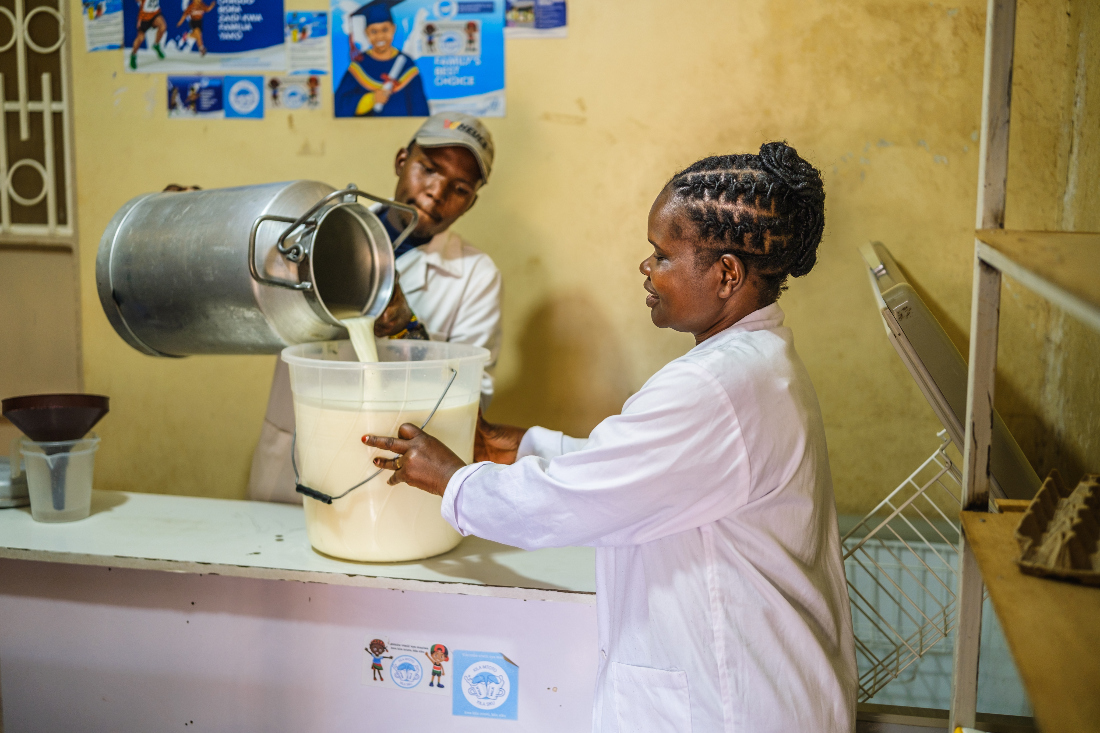
Coletta Kemboi selling her milk at a market in Eldoret City, Kenya. (Gates Archive)
Despite recording significant progress across key indicators since the start of the new millennium, recent data has revealed a slowdown in development across the board, presenting what Suzman called a “broad picture of stagnation.”
The Gates Foundation, launched in 2000, is the second-largest charitable body in the world.
Suzman said the world had reason to feel optimistic in the wake of the new millennium. Buoyed by successful global health and vaccination campaigns, a halving of preventable child mortality took place between 2000 and 2020 — from 10 million deaths per year to fewer than five million.
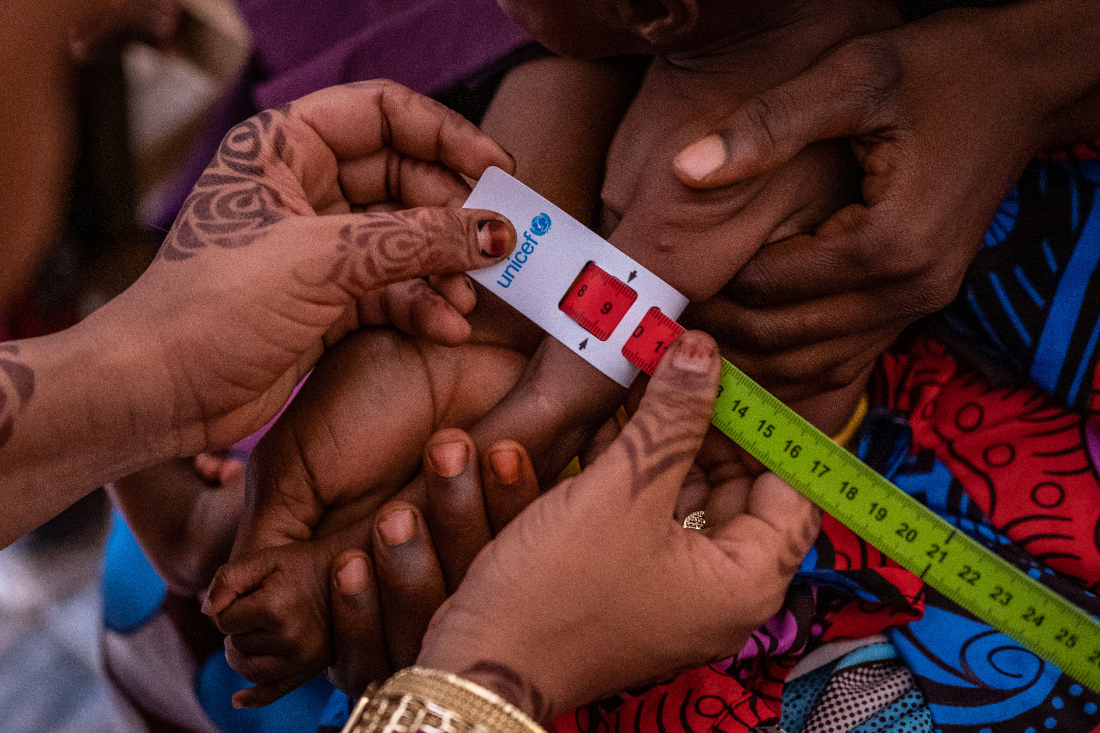
Acute malnutrition measurement 2. (UNICEF)
“A lot of that was on the back of massively increased vaccination rates and the scale up of vaccines through the GAVI Vaccine Alliance,” he said, referring to the global public-private health partnership devoted to increasing access to immunization in poor countries.
“During the first 15 years of the 21st century and the first five years of the SDGs, we had rapid progress, especially in the areas of global health that the foundation focuses most deeply on.”
Amid faltering SDG progress, however, “we are now at a stage, where, in 2024, the world has not gone back and has yet to achieve its 2019 vaccination rates.”
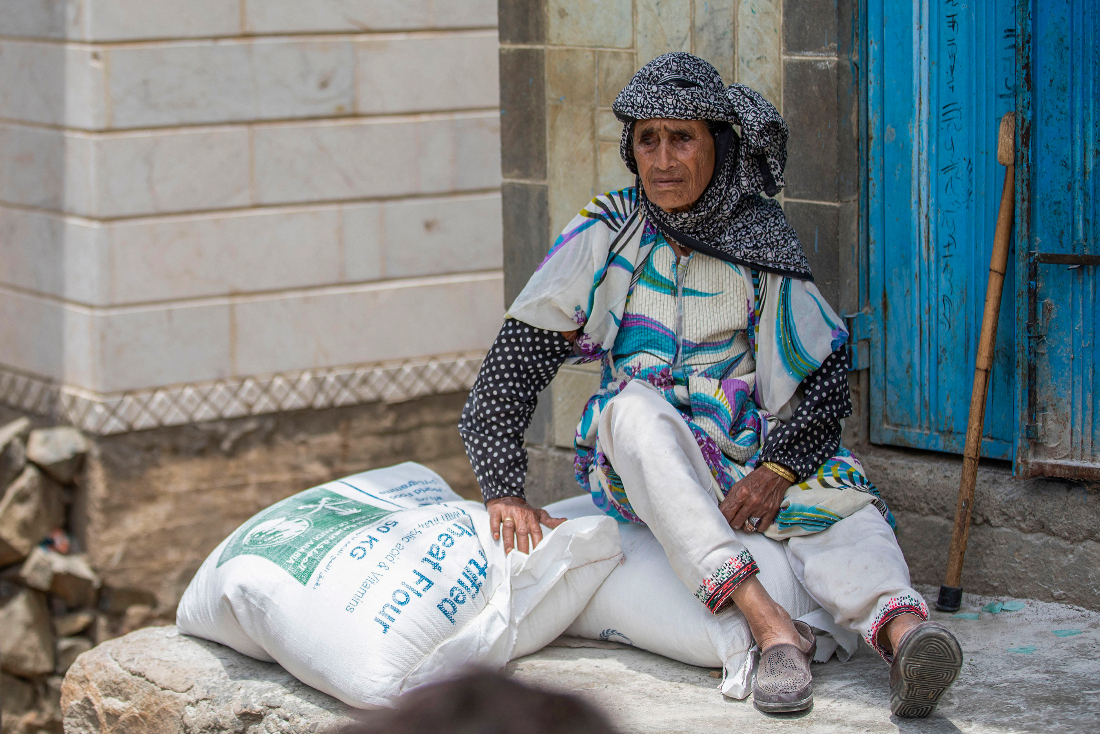
The distribution of WFP-provided aid resumes after its suspension since the killing on July 21 of the head of the UN agency's office in Taez in a shooting in a nearby city. (File/AFP)
And it is not only vaccination campaigns that have stagnated. Progress on beating hunger has also lagged — something the Goalkeepers report says could result in unimaginable human suffering if the world fails to act.
A lack of immediate global action on malnutrition linked to climate change is expected to condemn an additional 40 million children to stunting and 28 million more to wasting between 2024 and 2050, the report found.
A slowdown in foreign aid to the African continent — despite more than half of all child deaths occurring in sub-Saharan Africa — threatens to leave hundreds of millions of children at serious risk of dying or suffering from preventable diseases.
Malnutrition has receded from global awareness as other needs — like the wars in Gaza and Ukraine and the European migration crisis — have gained prominence.
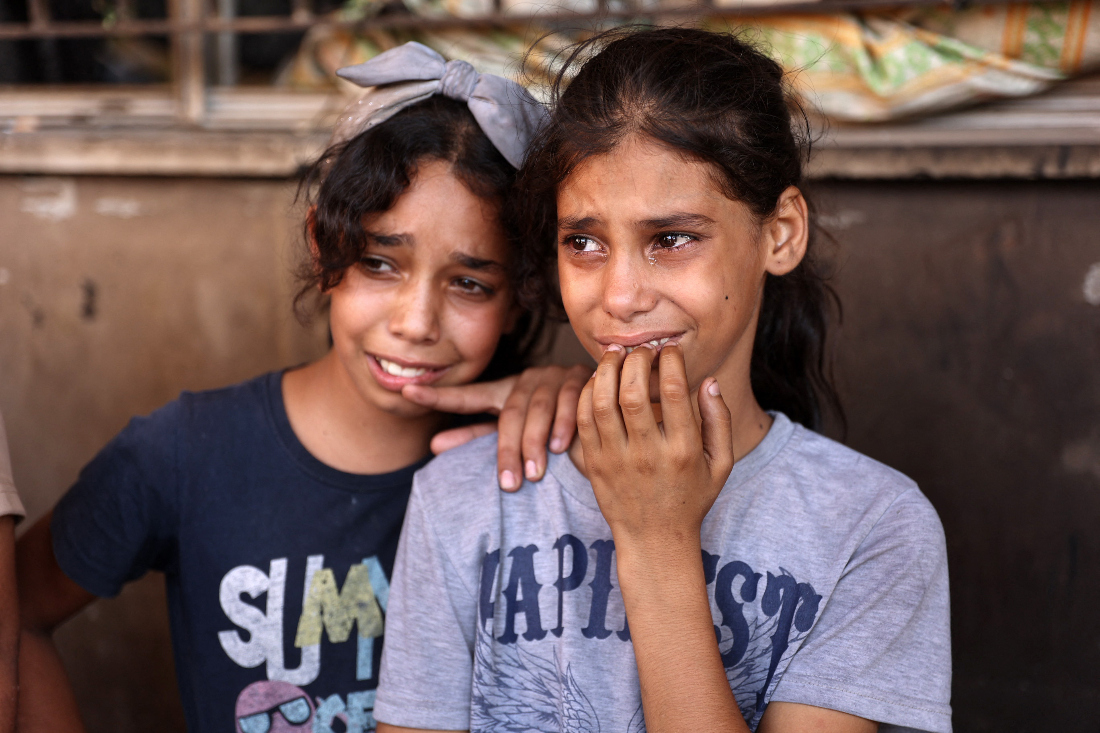
Children react following an Israeli strike on a school sheltering displaced Palestinians in Falluja near the Jabalia refugee camp in the norther Gaza Strip. (File/AFP)
“But our view is that these are all important priorities and they should not be at the expense of these critical long-term investments in global health,” said Suzman.
“And that’s one of the reasons why we picked nutrition this year. Because we highlight that as an area which has both been underinvested in historically, but actually has, we believe, the potential for some relatively low-cost, high-impact interventions now.”
One solution being deployed in Africa is food fortification, which, at relatively miniscule cost, has the potential to save hundreds of thousands of lives each year, according to the Goalkeepers report.
By adding nutrients to common ingredients like bouillon cubes and iodized salt, about 16.6 million cases of anemia could be prevented in Nigeria and 5,000 preventable deaths avoided in Ethiopia.
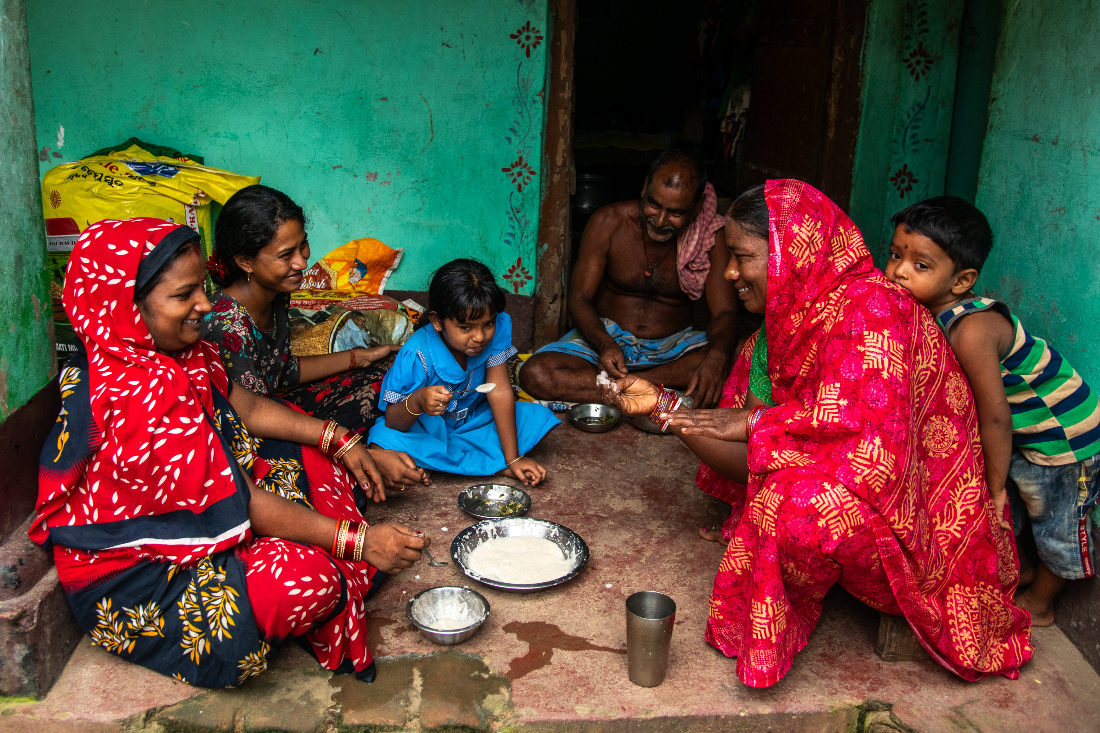
Goalkeeper, Sushama Das, (in red on the right) enjoys lunch with her family in Astaranga Village, Odisha State, India. (Gates Archive)
New technologies in the dairy industry to increase the amount of milk produced in Ethiopia, India, Kenya, Nigeria and Tanzania could prevent millions of cases of childhood stunting over the next 30 years, the report found.
The low-cost, high-stakes equation is at the heart of Suzman’s message in arguing for immediate intervention to end malnutrition.
“This is a true global crisis,” he said. “We’re talking about one in four children who do not get enough to eat and the effects are permanent. When you’ve suffered from stunting or wasting, your body and brain will never develop to its full potential.
“We have some data in the report that shows it’s not just about resilience and health. These children are less likely to stay in school.
IN NUMBERS
* 16.6m Anemia preventable in Nigeria with addition of nutrients to food.
* $3tn Estimated productivity loss globally owing to malnutrition.
* 50% Reduction in child mortality between 2000 and 2020.
“If you don’t stay in school, you’re less likely to have strong educational outcomes, you’re less likely to get a job and you’re more likely to live in poverty.
“And if you aggregate that up across societies, this is a long-term drag on economic and social prosperity, and we should not be allowing this to happen as a world.”
One method that the foundation is employing in its appeal to leaders and policy makers is constructing a macro view on malnutrition and other global health issues.
The Goalkeepers report underlines one statistic in particular that is likely to alarm policy makers — every year, more than $3 trillion in productivity is lost because of malnutrition, due to the combined loss in physical and cognitive abilities across human populations.
For low-income countries, the cost can be even greater, at 3-16 percent of gross domestic product. The result is that some of the world’s poorest countries must confront the equivalent of a permanent 2008-level recession every year, the report warned.
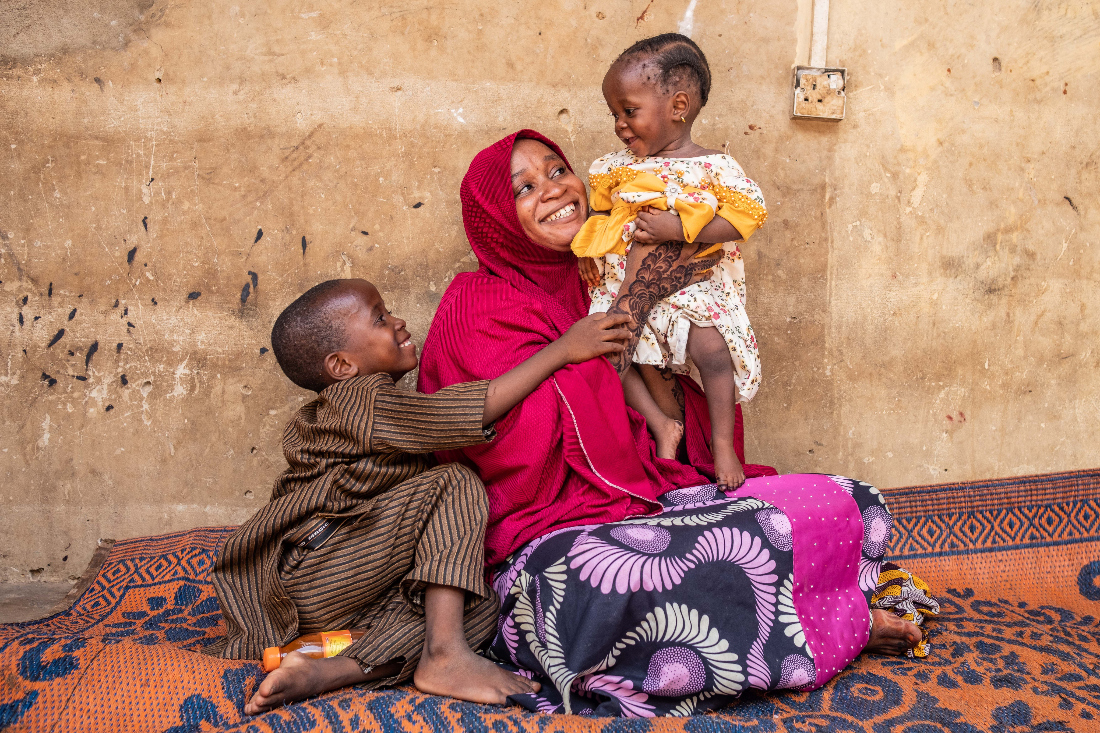
9-month-old Hafsat Abubakar is held by her mother, Safiya Ibrahim, at their home in the Sarkin Adar Gidan Igwai neighbourhood of Sokoto. (UNICEF)
By highlighting the economic toll of failing to act, Suzman has found a means to engage with government ministers and policy makers around the world. The numbers behind this human suffering “become more concrete if you’re trying to talk to a finance minister,” he said.
“The additional healthcare burden, for those who are malnourished — it’s a 20 year cycle. The returns on investing in a healthy child come through 20 years later when they become healthy, productive members of an economy. And that’s not something that politicians, if they’re focusing on the next year or two, will necessarily pay attention to.
“We’re really trying to highlight that because also it makes sense from an international aid perspective. You want to invest in long-term health and resilience of populations, because they’re more likely to then provide productive opportunities for their own citizens and build an all-round healthier world.
“Trying to highlight those numbers and that impact is exactly what this report is intended to do for policy makers and funders.”
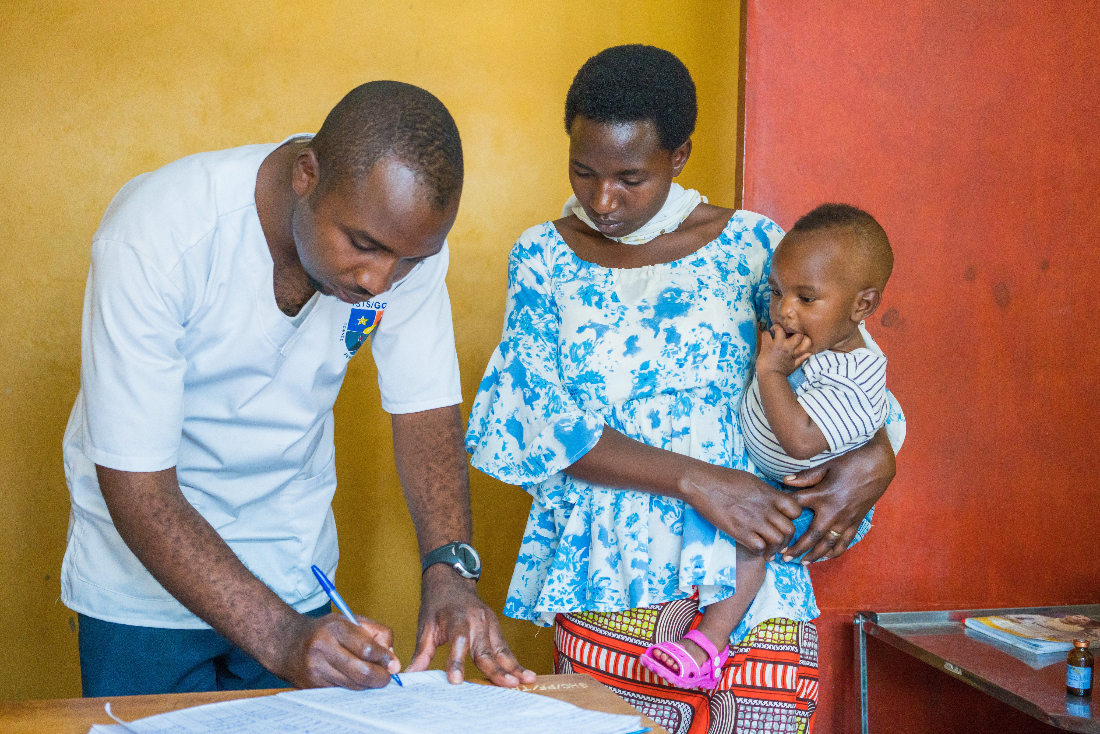
A nurse registers women for prenatal consultations at the health center in Gisenyi, Rwanda on April 30, 2019. (Gates Archive)
Conflicts and humanitarian disasters often overlap with cases of malnutrition, said Suzman, highlighting the examples of famine-struck Gaza and Sudan. But the long-term building of development structures and health systems can help build resilience.
“The number of mothers and children facing malnutrition (in Gaza and Sudan) is just much higher than it should be and needs to be addressed urgently,” he said.
Suzman believes national and multilateral initiatives to provide urgent cash can offer a ray of hope amid persistent funding gaps. He said the Gulf states had been able to “play a true leadership role” through prudent and precise humanitarian investment.
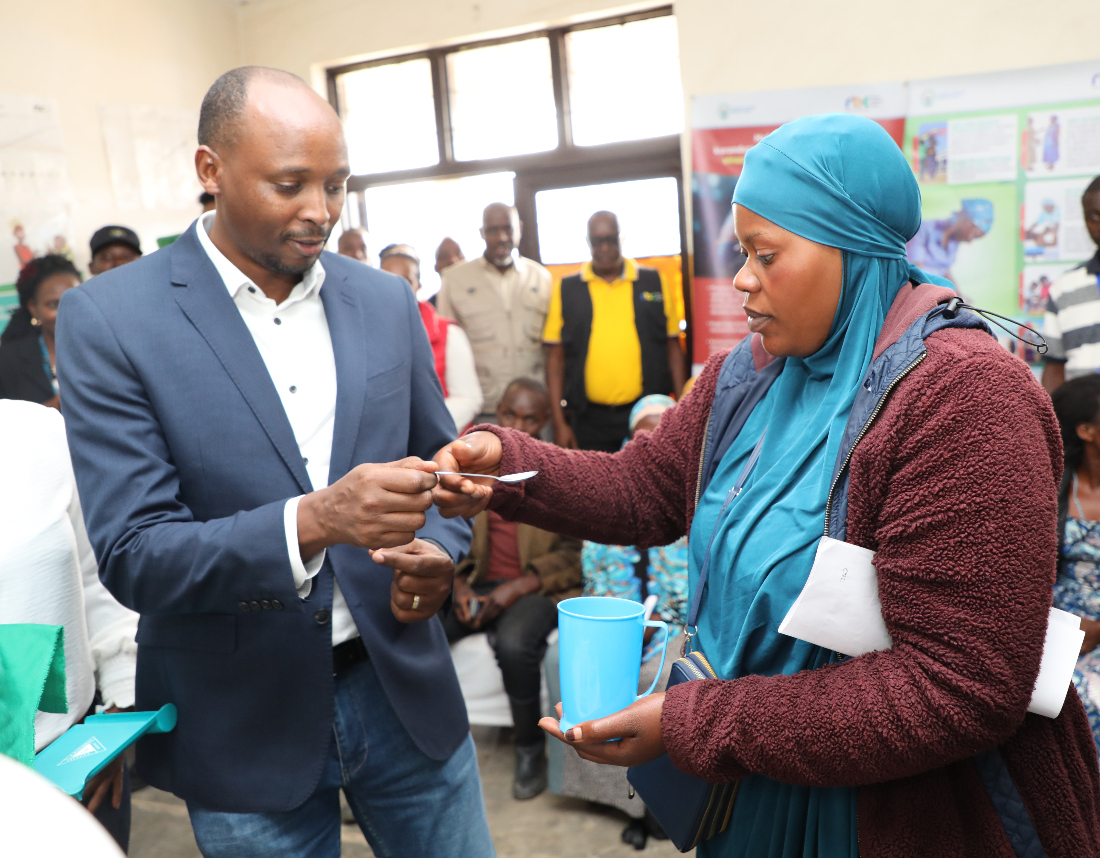
Dr. Nsanzimana Sabin, the Minister of Health, personally administers the inaugural doses of Multiple Micronutrient Supplementation to a pregnant woman, symbolizing the commencement of a transformative healthcare initiative. (UNICEF)
In particular he highlighted the Lives and Livelihoods Fund, an initiative that provides affordable financing to the poorest 30 member countries of the Islamic Development Bank.
“We helped set it up with the governments of Saudi Arabia, the UAE and Qatar,” he said. “The fund of the Kingdom of Saudi Arabia announced an additional $100 million contribution earlier this year, which we’re matching.
“That’s supporting efforts like rice resilience across West Africa or child mortality, maternal mortality investments also in some of these crisis situations.
“So, we hope that that type of partnership can actually help address crises both in the region and more broadly, while also using our voice to support the very important humanitarian efforts that are underway in the crisis situations.”
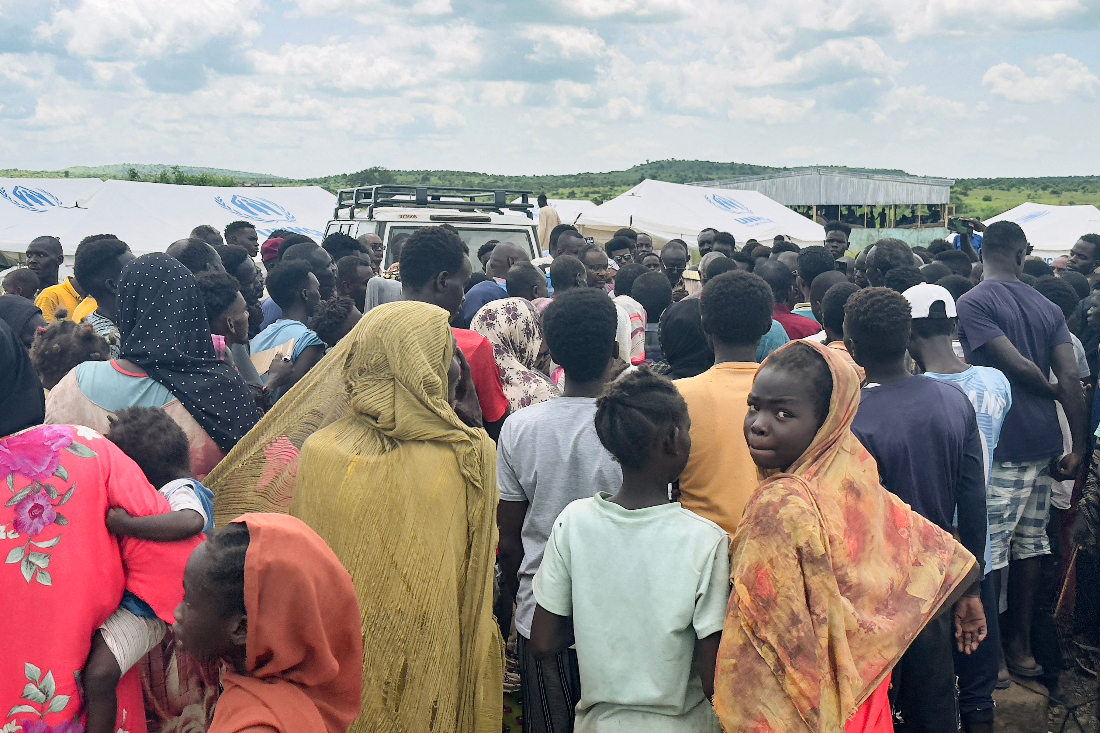
Displaced Sudanese who have returned from Ethiopia gather in a camp run by the United Nations Refugee Agency (UNHCR) in Sudan's border town of Gallabat. (File/AFP)
Earlier this year, Gaza reported its first case of polio in 25 years. Its reemergence alarmed health officials and policy makers, coming decades after a global campaign to eradicate the virus saw significant success.
Suzman described the polio case as a “completely avoidable tragedy” that was precipitated by Israel’s ongoing military operation in the Palestinian enclave.
The conflict, as well as ongoing violence in Syria, Yemen and Sudan, are further examples of the ability of short-term crises to undermine long-term development efforts, he said.
“The Global Polio Eradication Initiative has stepped in to launch and now complete a critical vaccination campaign (in Gaza). We’ve actually seen that in other crises. The GPEI has also worked in Syria and Yemen. This is a challenge.”

The war which has raged since April 2023 between Sudan's regular army and the paramilitary Rapid Support Forces has left tens of thousands dead and displaced more than ten million people, according to the United Nations. (File/AFP)
Suzman has particular praise for Saudi Arabia’s commitment of $500 million to the GPEI earlier this year, describing the donation as “really profoundly important.”
“We’re the largest global funders of polio campaigns, but Saudi Arabia is now very much one of the top funders and I think it’s an appreciation of the fact that we need to tackle these issues in all crisis situations, because you still have to vaccinate every child globally long as there are any cases circulating in any country,” he said.
“It’s a very good example of the broader challenges of health financing and the risks that stay with you if you take your eye off the ball. If you allow these things to happen, the consequences can be profound.”
The scale of the problem, as revealed by the Gates Foundation’s annual report, is both immense and intimidating, with far-reaching global consequences.

A young Palestinian man sits next to a mural that he painted on the rooftop of a destroyed house in Khan Yunis in the southern Gaza Strip, to show his solidarity with the people of Gaza and Lebanon. (File/AFP)
Suzman, however, remains convinced that eradicating malnutrition, boosting health indicators and building climate resilience are not Sisyphean tasks, but achievable targets that can be realized through cheap, targeted investment.
“We want this report to be read by government leaders, policymakers, philanthropists and private sector leaders who work in this space,” he said.
“We want them both to understand the magnitude of the challenge and why malnutrition, actually, does affect them — understand connections, not just the humanitarian tragedy.”
What is his message to people with the power to effect change?

Portrait of Elena Swain, daughter of Goalkeeper, Sushama Das, with her son, Sraboni, in Astaranga Village, Odisha State, India. (Supplied)
“The scale of funding we’re talking about is very doable and achievable.”
The return on investment would not only save the lives of children in some of the world’s poorest and most conflict-ridden countries, but will, over the next two decades, build a “healthier and more resilient world,” he said.
“That’s the message we hope will come out. And we hope policymakers will listen to it.”























